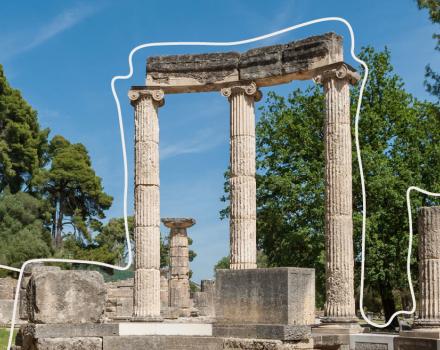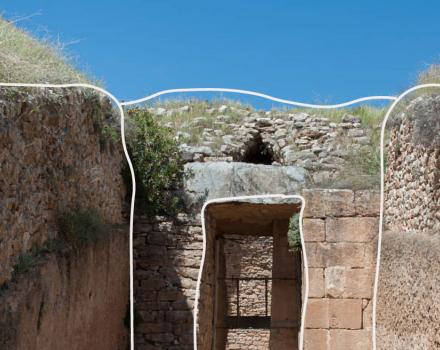"Logos" (λόγος) in the Ancient Greek language has various meanings; word or speech, the expression of thoughts and ideas. It is also used to convey reason or rationality, signifying the capacity for logical thought. In philosophical contexts, especially in the works of Heraclitus, "logos" can refer to a principle of order and knowledge governing the universe, reflecting the underlying structure or reason that brings coherence to the world.
Uncover the fascinating origins of international words derived from Greek share their rich linguistic context. Find out more on Classical Greek Level A course.
In mathematical and scientific contexts, "logos" can mean ratio or proportion, symbolizing order and harmony in mathematical relationships. Additionally, "logos" may convey the idea of an account or explanation, serving as reasoned discourse or argumentation that justifies a particular viewpoint.
In later philosophical and religious thought, "logos" takes on a transcendent and divine quality. In Stoicism and the merging of Greek philosophy with Christian tradition, it is seen as a cosmic principle or divine reason guiding the universe.
The term's richness and flexibility allow it to span linguistic, philosophical, and metaphysical dimensions, playing a significant role in shaping various concepts in the history of Western thought.
The Ancient Greek word λόγος (logos) and its derivatives continue to influence contemporary language and thought. Here are some examples In today's usage: The term "logic" (in Greek λογική - pron. loyikí) directly derives from λόγος (lόghos) and refers to the study of reasoning, argumentation, and valid inference. It is a branch of philosophy and a fundamental component of critical thinking.
A "logo" is a symbol or design representing a company, organization, or brand. Although not immediately apparent, it reflects the idea of a visual representation embodying the essence or identity of a concept. "Ecology" is derived from the combination of οἶκος (écos) (meaning "house" or "habitat") and λόγος (logos) denoting the scientific study of relationships between living organisms and their environment. "Eulogy," praising or commemorating someone who has passed away, is derived from the Greek "eu" (meaning "good") and "logos" (meaning "word" or “speech"). "Apology," in the context of expressing regret or seeking forgiveness, comes from the Greek "apologia," meaning a defense or justification. It is rooted in the idea of providing a reasoned explanation. Other common everyday examples include “dialogue”, “prologue”, “epilogue”, “biology”, “etymology” etc.
These examples demonstrate how the legacy of "logos" persists in contemporary language, influencing fields ranging from philosophy and science to branding and communication.
Are you ready to learn more? Discover the plasticity of Classical Greek, register now to the next cycle of Classical Greek level A.
Φωτογραφία: wikimedia commons














